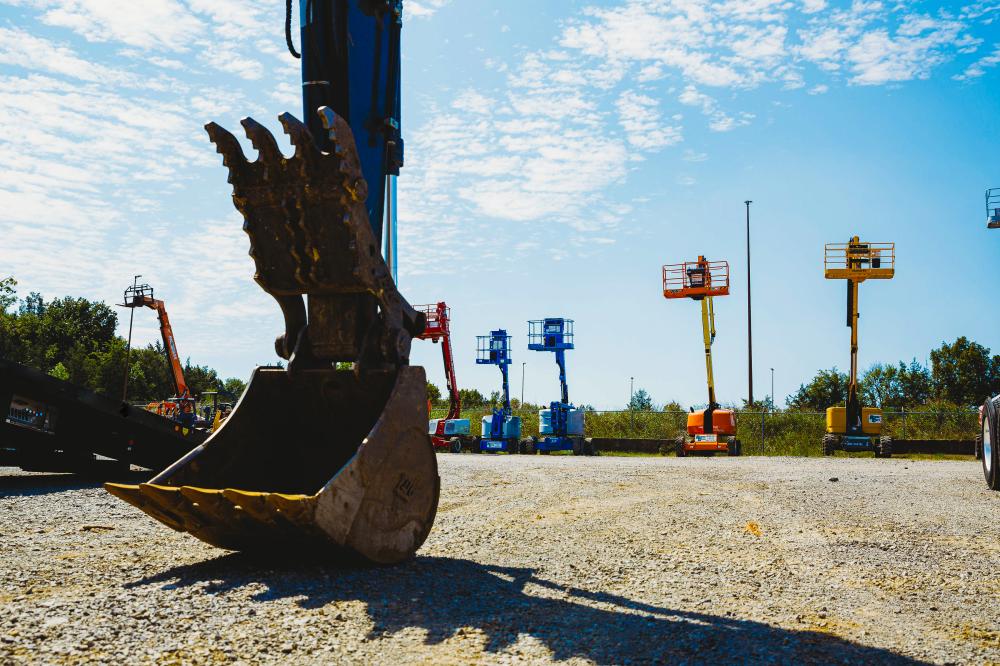Essential Tips for Managing Heavy Equipment Rental Agreements and Logistics Efficiently
Efficiently handling heavy equipment rental agreements and logistics is important for the success of any type of job that counts on these resources. An extensive understanding of rental terms, paired with accurate evaluation of equipment requirements, lays the structure for beneficial arrangements.
Understand Rental Terms
Recognizing rental terms is crucial for effective hefty tools monitoring. The rental period specifies the timeframe for which the devices is rented, influencing budgeting and job timelines.
Moreover, it is essential to understand the maintenance commitments laid out in the arrangement. Generally, rental business keep the devices, but understanding that is accountable for routine checks and fixings is crucial to avoid operational interruptions. Furthermore, terms may consist of stipulations concerning liability for damages or burglary, which can have severe monetary implications otherwise appropriately understood.

Assess Devices Needs
Assessing tools demands is a vital step for any type of job supervisor intending to enhance source allocation and enhance operational efficiency. This procedure entails a comprehensive assessment of the job requirements, including specific tasks, timelines, and the kind of equipment required to accomplish desired end results.
Begin by identifying the extent of the project and the jobs that will certainly be done. Think about aspects such as the terrain, the scale of procedures, and any kind of potential obstacles that might influence equipment option. Involving with staff member that will operate the equipment can supply useful insights right into functional demands and choices.

Following, examine the capacity and capacities of offered equipment alternatives. It is important to match the ideal devices to the jobs available, making certain that it can manage the anticipated workload without endangering safety or performance.
Furthermore, element in the rental duration and frequency of use. Comprehending these aspects can aid establish whether renting out or purchasing is the most economical solution. By carrying out a thorough evaluation of tools needs, job managers can make enlightened choices that lead to improved efficiency and reduced operational prices.
Negotiate Efficiently
When the equipment requirements are clearly identified, the next step entails reliable arrangement with rental companies to secure favorable terms. Begin by researching various rental companies to understand their prices frameworks, supply accessibility, and online reputation.
When coming close to the arrangement table, be clear regarding your requirements, including the kind of tools, rental duration, and any added solutions you may need. This openness allows rental companies to provide customized solutions that can fulfill your certain requirements (heavy equipment rental). Do not think twice to ask for discounts, specifically for lasting services or bulk orders, as numerous companies are eager to use concessions to secure bigger contracts
In addition, take into consideration working out terms related to distribution, insurance coverage, and maintenance costs. These aspects can dramatically influence the overall cost and ought to be explicitly outlined in the rental contract. Ensure that all agreed-upon terms are recorded in writing to avoid misconceptions and protect your rate of interests throughout the rental duration. Reliable negotiation not only leads to price financial savings but also establishes a favorable partnership with the rental company.
Coordinate Transport Logistics
Coordinating transport logistics is a crucial element of handling heavy equipment rental agreements. Effective transportation guarantees that devices is provided in a timely manner and in ideal problem, therefore reducing downtime and improving task performance. To accomplish this, it is vital to create an extensive logistics prepare that details the entire transportation process from pickup to delivery.
Begin by assessing the particular transportation requirements based on the type and size of the tools involved - equipment rental company. Involve with dependable transport providers who concentrate on hefty equipment used skid steer to guarantee they possess the necessary knowledge and equipment, such as flatbed vehicles or specialized trailers. Talk about factors such as weight restrictions, path limitations, and needed licenses to avoid unexpected delays
Moreover, preserve open communication with both the rental company and the transportation copyright to collaborate routines properly. Validate all information, including pickup and drop-off times, to ensure everyone is lined up and prepared. Finally, develop contingency strategies to deal with any kind of potential disturbances, such as adverse climate or traffic problems, which may influence the transportation timeline. By thoroughly collaborating transportation logistics, you can support the integrity of your rental arrangement and assist in smooth job implementation.
Prepare For Maintenance and Support
In addition, it is essential to communicate straight with the rental copyright pertaining to maintenance responsibilities. Some arrangements may consist of maintenance as component of the rental service, while in various other situations, the obligation may drop on the tenant. Understanding these terms will certainly help stay clear of unexpected prices and liabilities.
Furthermore, having access to technological support can be very useful. Make sure that the rental business provides 24/7 assistance or an emergency get in touch with, permitting swift resolution of any kind of reference equipment problems. Educating your group on appropriate devices use and routine checks can likewise significantly improve functional efficiency.
Final Thought
In verdict, effective administration of hefty devices rental arrangements and logistics hinges on a thorough understanding of rental terms, accurate analysis of tools needs, and adept settlement skills. Highlighting clear interaction with all stakeholders continues to be important in browsing the intricacies of tools rental and logistics monitoring.
Efficiently taking care of hefty tools rental contracts and logistics is crucial for the success of any project that anonymous relies on these resources. By completely examining and comprehending these rental terms, companies can make informed choices, alleviate risks, and make certain that their hefty devices management aligns with task objectives and monetary restrictions.Coordinating transportation logistics is a crucial element of handling hefty equipment rental arrangements.In conclusion, efficient monitoring of hefty tools rental agreements and logistics joints on a detailed understanding of rental terms, precise evaluation of tools needs, and skilled negotiation abilities. Emphasizing clear interaction with all stakeholders remains crucial in browsing the complexities of tools leasing and logistics monitoring.